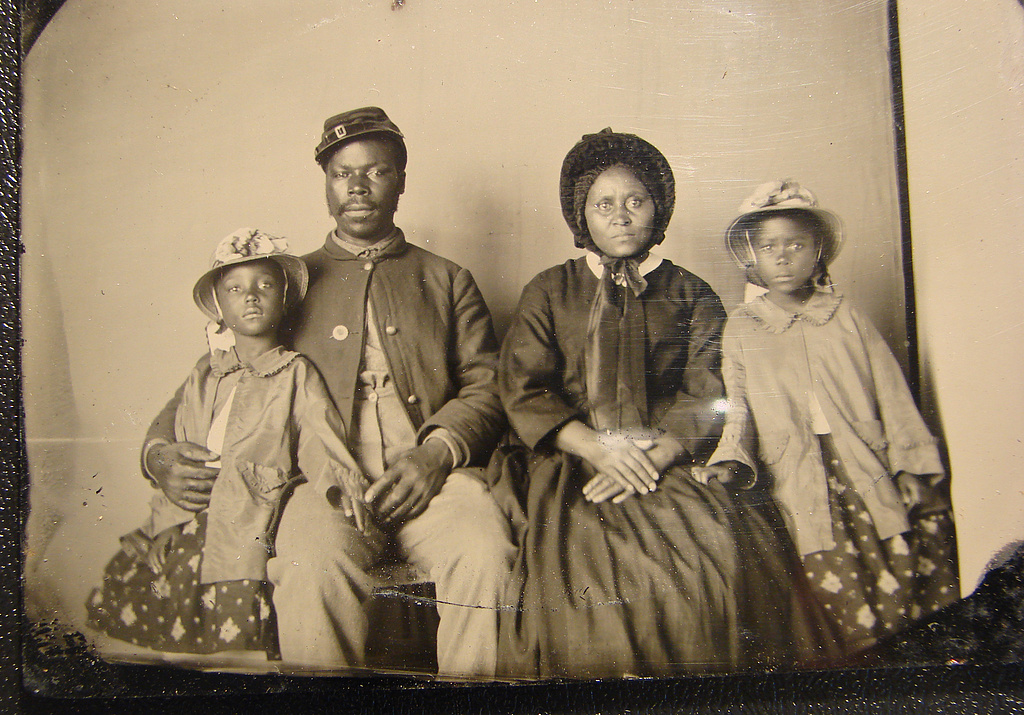Harrison Hodges and Martha Agnew were both born into slavery in Mississippi. They married just before the outbreak of war in February 1861. The record of their marriage was handed to the plantation owner, but was lost during the chaos of the war, maybe burned by Sherman’s marching troops. Their only child was born in 1862 and died barely six months later. We will never know why, though it was a common occurrence for slave children, half of whom died before their first birthday. Martha was heartbroken. She would never have the chance to have another baby with her husband.
The Price of Freedom
In 1863, Harrison and Martha were liberated by the Union army. Harrison joined the 11th Regiment USCT and became part of the battle to defeat the Confederacy. Like many black soldiers, he found himself only partly accepted by the white officers who took over his command.
Life as a soldier was tough for Harrison, and most likely difficult for Martha who was left back at home. During this period of the war, Union troops were freeing slaves from southern plantations, but many were soon brought back to work in similar conditions for the military – free, but only just. Their work, picking cotton, keeping the economy running, allowed the Union to keep funding the war effort as much as having soldiers to fight.


 RSS Feed
RSS Feed
